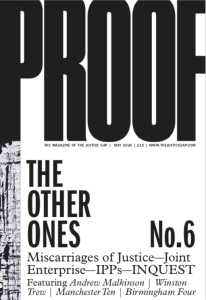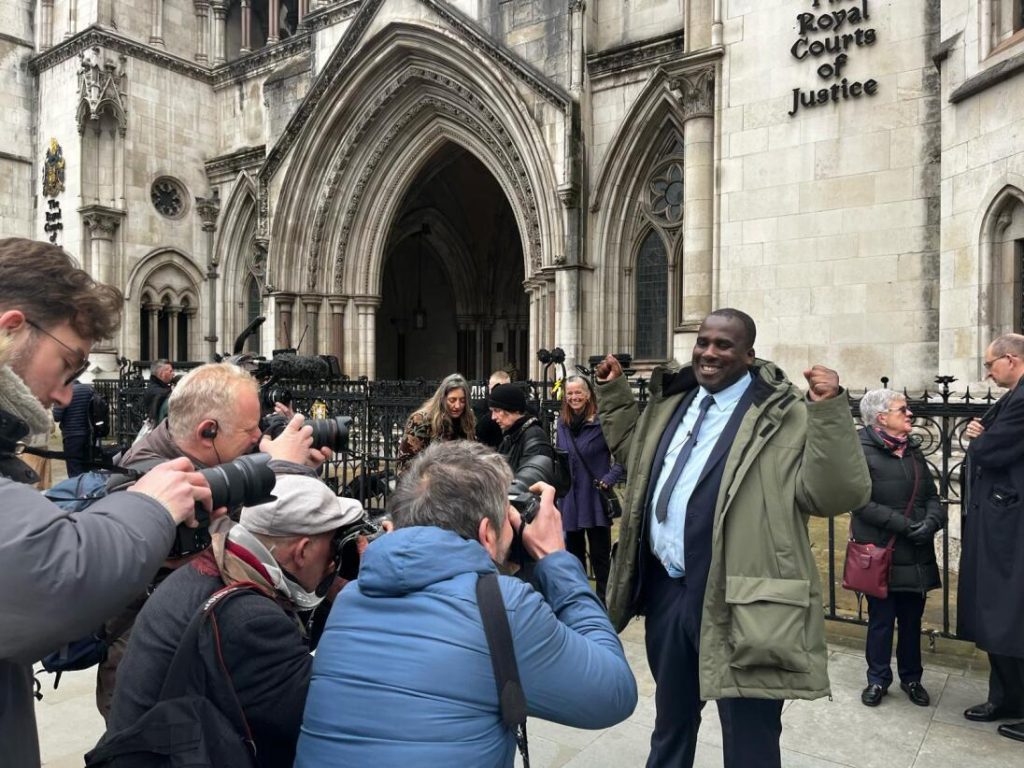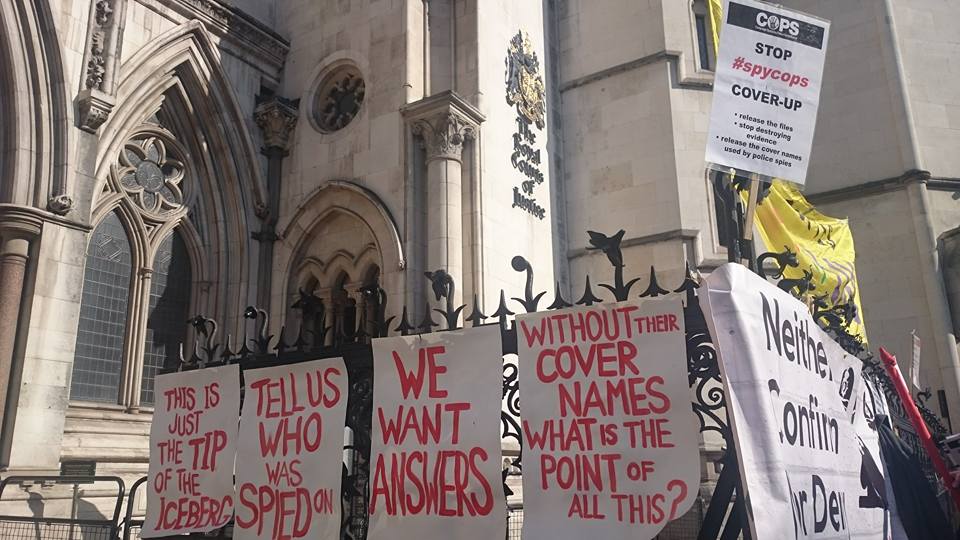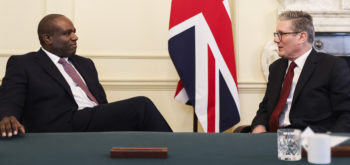‘Radical’ change is needed in the criminal appeals system to avoid future miscarriages of justice like the case of Oliver Campbell, exonerated last year after a 34-year fight to clear his name, according to the vulnerable man’s legal team. Campbell was imprisoned for the 1991 murder of a Hackney shopkeeper, serving 11 years for a crime he didn’t, indeed could not have, committed. He told an audience at a London law firm this week: ‘I’ve got justice, but the shopkeeper’s family and friends do not.’
Oliver Campbell’s conviction was begrudgingly overturned by the Court of Appeal in 2024 (as reported here), following the ‘absurd’ suggestion that the Crown Prosecution Service may have pushed for a retrial. His lawyers, speaking at one of the Rough Justice series of talks organised by the Legal Action Group and the Justice Gap on Wednesday evening, claimed such a move would have been an ‘unprecedented’. There was no new evidence in the case, no forensic evidence linking Campbell with the crime, no new witnesses, and it had been over 30 years since the murder.
His solicitor of 25 years, Glyn Maddocks KC questioned what the public interest could be in re-trying him, in particular when he had already served a prison sentence for the murder. He added that the public cost would be enormous, let alone the fact that the case likely wouldn’t come to court until 2028.
 The court conceded that Oliver Campbell would ‘struggle’ with a retrial, but otherwise largely overlooked the cache of evidence presented by his legal team. They failed to grapple with the fact that his co-accused, Eric Samuels, had exonerated him on several occasions. They also didn’t deal with the conduct of rogue police officers who used now-outlawed techniques to goad him into a false confession. Nor did they consider that when he made his confession there was no solicitor present.
The court conceded that Oliver Campbell would ‘struggle’ with a retrial, but otherwise largely overlooked the cache of evidence presented by his legal team. They failed to grapple with the fact that his co-accused, Eric Samuels, had exonerated him on several occasions. They also didn’t deal with the conduct of rogue police officers who used now-outlawed techniques to goad him into a false confession. Nor did they consider that when he made his confession there was no solicitor present.
The conviction was overturned on one limited ground – the evidence of forensic psychologist Dr Alison Beck, that described how Oliver’s lack of cognitive ability on account of a brain injury he suffered as a baby meant that he didn’t receive a fair trial and the conviction was therefore unsafe.
- Read about the case of Oliver Campbell in PROOF, issue 6, by Nicholas Reed Langen
- The case has featured many times on the Justice Gap including this by Justice Gap editor Jon Robins on the Court of Appeal’s controversial ruling and an interview with Oliver featured on the podcast
No chance of compensation
Despite now having had his conviction overturned, Oliver Campbell will likely never receive compensation for the fact that he was wrongfully imprisoned. Maddocks described how, due to the change to the law on compensation in 2014, compensation is now ‘a non-starter for people like Oliver’.
The current regime means the wrongfully convicted must prove ‘beyond all reasonable doubt’ that they are innocent of the crime for which they were convicted – an insurmountable hurdle for most people and a principle that undermines the right to be considered innocent until proven guilty. If Campbell’s conviction had been overturned before 2014, it is likely he would have received a considerable amount of compensation for his ordeal.
His former MP, Sandy Martin, told the Legal Action Group/ Justice Gap event that the compensation regime is ‘basically and fundamentally wrong’. He described how in the most expensive year for the government in terms of miscarriage of justice compensation they paid out just £15m. He added ‘if we can’t find £15m there is something very wrong with how we’re running the country’.
A long-time supporter of Oliver Campbell and campaigner on his behalf, Sandy Martin said his case ‘epitomises the problems we have with the justice system in this country’.
The need for ‘radical change’
Legal academic Dr Stephanie Roberts, a senior lecturer at Westminster University law school, described the 125 year history of the Court of Appeal as one of ‘endless reviews’ during which the court’s powers have been amended, but its attitude has remained the same. She said we need to stop changing the court’s powers and ‘hoping for the best’ if injustices are to be avoided. Roberts urged the Law Commission, who are undertaking an extensive review of the criminal appeals system with their recommendations due next year, to be ‘radical’ and look at issues that have not been looked at before.
The role of the Court of Appeal since its inception has been to review the legality of decisions made in jury trials, not to take a different view than the jury. It is also founded on the principle of finality – that cases cannot be opened and re-opened again and again after the judgment has been handed down. This has often stifled any liberalising reform of the court.
The Law Commission’s ongoing review of criminal appeals is considering whether the Court of Appeal should be able to consider juror deliberations when they may reveal evidence around juror impartiality, and whether the fact that a conviction may be ‘unsafe’ should be the only ground for an appeal. The body are also seeking submissions about the impact of fresh evidence that wasn’t available to the jury, and whether this should automatically lead to a retrial.
The recommendations that the Law Commission formulates at the end of this consultation will be presented to the government, who must then decide what measures, if any, to implement.
30 years of progress?
Oliver Campbell’s Barrister, Michael Birnbaum KC, described to the audience the many ways in which Campbell’s conviction could not have happened today. Police officers in Hackney were determined to pin the murder on Oliver, and the entire investigation was coloured by that prejudice. During long interrogations, including sessions without a solicitor present, they exaggerated the strength of the case against him and minimised the consequences of conviction. Birnbaum said these days ‘that kind of prejudiced interrogation could not happen’.
He described the ‘central injustice’ of the case against Campbell – that the so-called ‘Harvey admissions’ by his co-accused, Eric Samuels, were not presented to the jury. The court never heard that Samuels had exonerated Oliver Campbell on several occasions, because the prosecution at the last minute didn’t call him as a witness, and the defence could not then recall this evidence as it was dismissed as ‘hearsay’. A change to the law in 2005 means this kind of evidence could be relied on, so the jury would have learned of these admissions.
Developments in forensic psychology, as well as concessions for vulnerable defendants in the police station and the witness box, also mean Campbell would have had a much better chance of presenting his case. At the time of his trial very little was known about the science behind false confessions, and Oliver was not entitled to an ‘appropriate adult’ in the police station or an intermediary in court – both of which would be available to him today.
Oliver Campbell closed the event by reminding the audience that the wrong man was convicted for the murder of Baldev Hoondle, and while he has been fighting for over 30 years to clear his name, the police have still never found the real killer.








